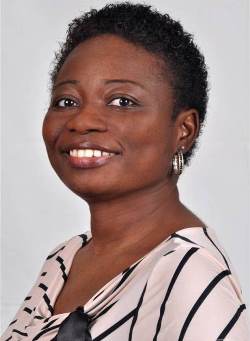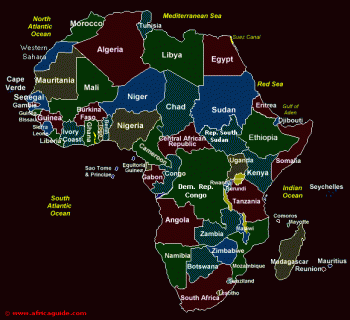You are here
Building Biobanks for Africa

It is known that many infectious diseases such as HIV/AIDS are epidemic in Africa, where over 22 million people live with this disease. However, non-communicable and genetic diseases also have a high prevalence in Africa, and need to gain higher priority in the health agenda. Over 12 million people in Sub Saharan Africa have diabetes, and the prevalence is rapidly increasing. The World Health Organization (WHO) reports that 75% of the cases of sickle cell disease occur in Africa. In some countries like Nigeria, 150,000 children are born with the condition each year. Furthermore, the sickle cell carrier status is as high as 45% in countries like Uganda, and ranges between 20% to 30% in countries like Nigeria, Ghana, Republic of Congo, Gabon and Cameroon. (1)
There are several successful approaches to improve health and survival for sickle cell patients, including genetic counseling, early detection, chemoprophylaxis and vaccines. (1) In severe cases of sickle cell disease stem cell transplants have been successful. Despite the existence of all these methods, many parts of Africa lack access to routine screening and adequate control of sickle cell disease. Many children with sickle cell anemia die before the age of five. (1) The WHO has called for the strengthening of national disease control programs.
We believe that building biobanks in Africa such as cord blood banks and other types of tissue biobanks can play a role in combating non-communicable diseases including sickle cell disease.
Modern humans originated from the African continent. The genetics of Africans is very complex compared to other populations because of the age of the population. (2) For example, a comparison of two South African individuals shows that their genomes are more different than a comparison of an Asian to a Caucasian. (2) The study of the genetics of Africans can help scientists to better understand evolution, migration out of Africa, and the genetic basis of non-communicable diseases.
The uniqueness of African genetics can also be used for personalized medicine to develop therapies and medicines that work better in Africans. (2) In order to advance personalized medicine, more Africans should donate samples to biobanks. Biobanks are facilities that store and catalogue human cells and tissues in very cold freezers for future use. Many types of samples can be stored in biobanks including: nucleic acids, cancer biopsies, blood, saliva, skin, and stem cells. Stem cell biobanks especially have very broad applications because, depending on the type of stem cell, they can potentially be converted into different types of tissue that have therapeutic and drug discovery applications.
Cord blood banking is a type of stem cell biobank. It is a rich source of stem cells for therapy and has found uses in the treatment of cancers and genetic disorders including sickle cell disease. (2) Quite recently there is a new type of stem cell technology called induced pluripotent stem cells (iPSCs). These iPSCs can be made from small samples of living human tissue such as skin, blood and even cord blood. These small samples are then converted to iPSCs in the laboratory using genetic engineering. The iPSCs are very special because they have properties called self renewal and pluripotency. Self- renewal is the ability to grow indefinitely in culture therefore the cells can be stored for future use. Pluripotency is the ability of the cells to be converted into almost all cell types in the body.
Biobanking should be promoted and adopted on the African continent so that there will be samples available for the development of therapies and drugs that are optimized for Africans. However, there are very few biobanks in Africa now. There currently are only two private cord blood banks with laboratories in Africa, both located in South Africa. More people would benefit if cord blood banking was available in more African countries. Africa needs public cord blood banks too, where presently there are none. In private cord blood banks, parents pay to store the cord blood from their newborns to be used by their children or relatives in the future. Although this is a good idea it is limited to people who can afford to store the samples. In public cord blood banks parents donate cord blood so that anyone who needs it can use it even if they are not related. The parents do not pay to donate to a public bank and a repository of African cord blood units would make it easier for patients of African descent to find genetic matches.
There are a number of challenges to overcome in building more biobanks in Africa. Many governments may feel that in light of existing priorities to cope with the burden of communicable and non-communicable diseases on the continent, that building biobanks for Africa is a low priority. However, we argue that building these forward thinking biobanks can actually be integrated into the existing health agendas as a form of primary prevention. Another challenge for Africa is that there are not very many scientists and doctors with expertise in the field of biobanking and stem cells, and many countries have poor infrastructure such as irregular electricity to support scientific innovation.
Africa need not stand alone in this effort. Collaborations should be encouraged with institutions around the world, such as California's CIRM, that are dedicated to advancing medicine via stem cell and genomics research. In our lab at The Scripps Research Institute, we are working to establish an ethnically diverse iPSC biobank. This effort started with seed funding from the Bill and Melinda Gates Foundation. Two years ago we generated the first African (Yoruba) iPSC line. (3) We have also generated and biobanked dozens of fibroblast and derived iPSC cell lines from individuals of various ethnic backgrounds.
Human Heredity and Health in Africa (H3Africa) is a large scale effort funded by the US National Institute of Health and the UK Wellcome Trust to fund genomic projects and biobanks on the African continent. The vision of H3Africa is to create and support state of the art research laboratories in Africa, run by African scientists. The H3Africa initiative has already funded pilot two pilot biobanks on the continent, one in Nigeria and another in South Africa, and they plan to fund a few more. These biobanks will store all types of human samples, derivatives from them such as DNA and RNA, and there are plans to convert some of the samples to iPSCs.
The ultimate goal of building biobanks in Africa is to study the role of genetics in disease susceptibility and adverse drug reactions, to further development of better drugs and vaccines for use in the developing world. (3)
References
- World Health Organization [cited]
- Fakunle, ES 2012; Trends in Molecular Medicine 18(12):695-699
iPSCs for personalized medicine: what will it take for Africa? - Fakunle ES, Loring JF. 2012; Trends in Molecular Medicine 18(12):709-16.
Ethnically diverse pluripotent stem cells for drug development.



